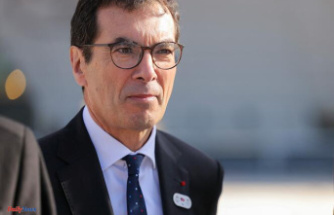At the beginning of April, Ivorian consumers, outraged, launched pell-mell petitions and calls for a boycott. The reason for their anger? Neither the price of food products – inflation affecting, like many others, this West African country – nor those of fuel or electricity.
Citizens railed against a de facto increase in mobile Internet prices, the telephone being the main source of access to the Web on the continent. The three operators in Côte d'Ivoire (Orange, MTN and Moov) had jointly reduced the volume of data included in 4G packages, while maintaining their prices. The decision was eventually suspended by the authorities.
This is not the first time that such a bronca has broken out south of the Sahara. In 2016, in South Africa, the hashtag
In absolute value, the average cost of a gigabyte reaches 4.47 dollars (4 euros) in sub-Saharan Africa, with very large disparities, compared to 2.72 dollars in Western Europe, according to the Worldwide Mobile Data Pricing of 2022. North Africa has a price of $1.05. Some sub-Saharan countries are among the world records: Togo, Namibia or Botswana exceed 10 dollars per gigabyte. For comparison, France is at $0.23.
"It's not a supply issue, it's a demand issue"
Why such high costs? First of all because of the small size of the markets, pleads the industry. If, in large cities, the ultra-connected middle class can afford the Asian smartphones that flood the shops and the prepaid plans that go with them, the "digital divide" remains very marked, especially in rural areas.
According to a 2020 World Bank study, three quarters of sub-Saharans do not use the internet at all. Either because they are not covered by 3G or 4G (these white areas tend to be reduced, affecting 17% of the population today), or because from around 40 dollars a smartphone remains inaccessible, or because buying data remains out of household budgets, explains Angela Wamola, sub-Saharan Africa director of GSMA, the international association of telecom operators.
"It's not a problem of supply, but of demand," she insists, from her offices overlooking one of the most effervescent neighborhoods in Nairobi, the Kenyan capital. The infrastructure is there, the investments have been made (…) But mobile internet works like a consumer product: if you want to lower the price, you need more people to consume the service. »
For his part, the analyst Thecla Mbongue, based in Johannesburg for the firm Omdia, specifies that these investments, considerable over the last twenty years, have been particularly expensive. “Compared to many parts of the world, African telecom operators have hardly been able to rely on historical infrastructure such as wired systems (…) outside of affluent urban areas. They have had to start from scratch and are trying to make their networks profitable as quickly as possible,” she continues, adding that the prices also reflect the high costs of electricity, the lack of servers on the continent as well as taxation. Several states, including Uganda, have notably implemented, then sometimes abandoned, taxes on social networks which are added to the packages.
Huge stake
Sub-Saharan Africa has also suffered from a lack of competitiveness in telecoms, with state monopolies that have led to high tariffs, noted the pan-African bank Ecobank in a 2018 note. Markets have now opened up , says Angela Wamola, but access to it remains, according to her, expensive for operators, in particular because of too short-term operating licenses - "sometimes five years" - which do not make it possible to amortize investments.
However, the situation seems to have improved in recent years. In 2021, the average price per gigabyte was $6.44 in sub-Saharan Africa, according to Worldwide Mobile Data Pricing, which is $2 more than in 2022.
The stakes are high, with internet access having a huge impact on poverty reduction. Applications and other platforms allow a farmer to sell his crops on time and at the best price, a trader to reach new customers, while the Web offers students resources for their work. "Expanding access to the Internet means creating millions of job opportunities", especially for young people, said Makhtar Diop, then vice-president of the World Bank, in 2019.
According to a study conducted by this institution with GSMA in Nigeria and dated 2020, the proportion of households in extreme poverty is reduced by 7% after at least two years of Internet access. On the scale of a country like this giant of Africa, the continent's largest population, "this corresponds to lifting around 2.5 million people out of extreme poverty", particularly in rural areas, the Bank pointed out. world.












